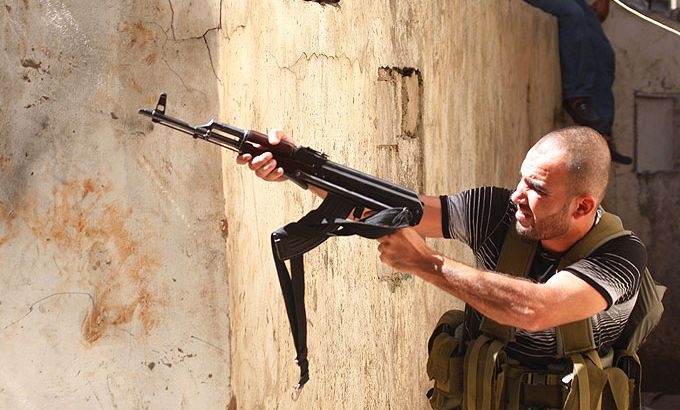Lebanese rivals continue battles over Syria
Fighting between pro- and anti-Damascus groups in Lebanon has led to at least 12 deaths and 100 injured.

The death toll from fighting between rival pro- and anti-Damascus gunmen in the city of Tripoli has climbed to at least 12, in clashes that the city’s residents described as some of the heaviest since Lebanon’s civil war.
More than 100 people have been wounded in the fighting which erupted this week along a sectarian fault line between the Sunni district of Bab al-Tabbaneh and the Alawite area of Jebel Mohsen.
Al Jazeera’s James Bays, reporting in Tripoli on Wednesday, said the city’s mayor had convened a crisis meeting to try to negotiate an end to the fighting but that no solution had been reached.
And the army said it will open up talks with city elders to restore stability.
The latest round of fighting has rattled the already fragile security situation in Lebanon, which lived under three decades of Syrian domination and remains deeply divided between supporters and opponents of the Damascus government.
The dead included a 13-year-old boy, while another 100 people have been wounded, including a boy of six who was paralysed by a gunshot wound and 15 soldiers, security sources said.
The fighting first erupted late on Monday in Tripoli, home to a Sunni community hostile to Syrian President Bashar al-Assad, and Alawites, an offshoot of the Shia sect to which the leader belongs.
The violence in Tripoli, Lebanon’s second largest city, saw machine guns and anti-tank rockets fired.
Alarming concerns
Najib Mikati, the Lebanese prime minister who is a native of Tripoli himself, raised fresh concern on Wednesday over “efforts to drag Lebanon more and more into the conflict in Syria when what is required is for leaders to co-operate … to protect Lebanon from the danger”.
The authorities have instructed the army and security forces “to bring the situation under control, to prohibit any armed presence and to arrest those implicated” in the violence, he said in a statement.
|
Ashraf al-Meqdad, al-Meqdad family member in Australia, says the kidnapping was part of a drug deal gone sour |
Later, an army statement said: “Due to the gravity of the situation and in order to prevent attempts of dragging the whole of Lebanon into a state of unrest… the army command announces it will enter into dialogue with the city’s leaders and officials, particularly in Bab al-Tebbaneh and Jabal Mohsen.”
France and United States have expressed concern over the latest flare-up and warned against a spillover of the Syrian conflict.
The latest unrest in Tripoli, which has been the scene of several deadly incidents over the past year, follows a wave of tit-for-tat kidnappings of Lebanese citizens in Syria and of Syrians living in Lebanon.
Last week, an armed Lebanese Shia clan claimed it had kidnapped about 20 Syrians in retaliation for the abduction of a family member by a Syrian rebel group, which accused him of being a sniper with the Shia movement Hezbollah.
Hezbollah, considered Lebanon’s most powerful military force, has denied any connection with the clan member or the kidnappings.
Meanwhile, the opposition Syrian National Council has accused authorities of failing to act over the attacks and implicitly blamed Hezbollah which heads a ruling coalition in Lebanon.